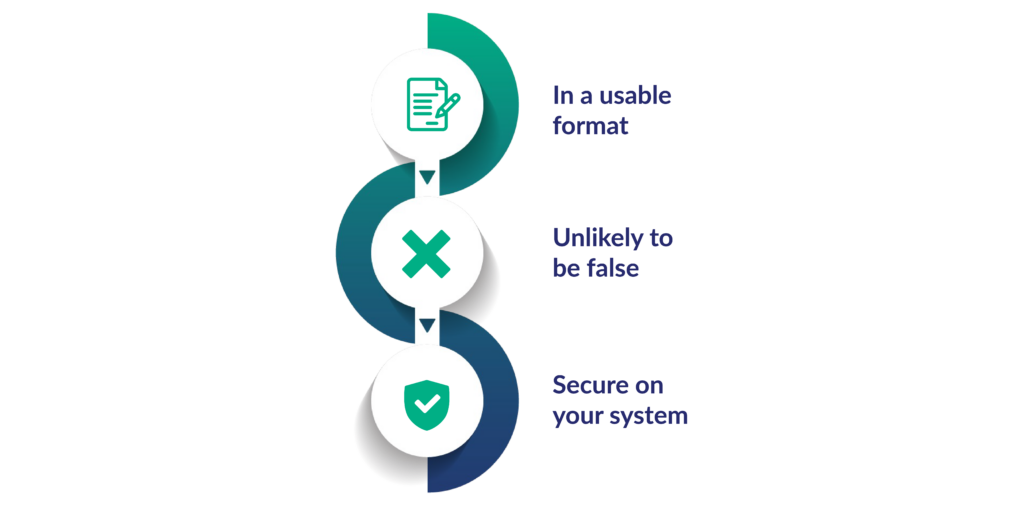EMS Data Governance Team
What is Data Governance? A Comprehensive Guide for Businesses
By 2025, humanity will generate over 175 zettabytes (175 million terabytes) of data. A considerable amount of this is disorganized, cannot be cross-referenced, or is poorly managed. If your organization are feels this burden, are you aware that you may have already missed valuable opportunities?
What if we told you there’s a solution?
This guide will help demystify the concept of data governance, making it simple for you and others to understand. Continue reading to learn more about practical steps you can implement to get the most about the data you have collected, including:
Reputational damage
Reduced trust
Lost income
Possible fines.
Having data you cannot quickly analyze also means using it is inefficient. So, streamlining your data management can significantly boost your ability to get work done and give you a new lease of life.
Simplifying Operations Through Data Governance
High-quality data governance is as simple as ensuring that any data you collect is available for use. Additionally, it should be:

When you succeed at these, you can ensure that your data is high-quality and that others can trust it when making decisions. The following steps can help achieve this:
Set clear data entry and formatting standards to ensure your datasets are consistent across your organization.
Validate your data to check for errors or inconsistencies in your system. Also, resolve duplicates in your data to ensure everyone has a single source of truth.
Assign responsibility to individuals who understand the importance of data governance. Empower these individuals to enforce data governance policies and resolve issues quickly.
Develop KPIs to track your data governance success, such as:
Data accuracy
Data completeness
Data consistency
Data timeliness
Data uniqueness
KPIs should also include compliance, usage, and security metrics to ensure compliance with the abovementioned regulations.
Who Is Responsible for Data Governance?
It is a misconception that only an IT department is responsible for ensuring your business adheres to data management best practices. In reality, the process is cross-departmental and involves the collaboration of several teams in a larger organization.
While this might sound like it can slow down operations, after initial efforts to organize the data, strong governance will have a powerful effect on speeding up decision-making.
Data Governance Best Practices
If you want to leverage good data governance, you may need some advice on the best steps to take. The following are some ways to ensure you are on the same level as other businesses doing the same.
If this seems too much effort, try contacting a digital strategy specialist such as EMS Consulting instead. They can offer a tailored plan to get your company up to speed.
Ensure C-Suite Sponsorship
Leveraging many of the best data governance benefits can be challenging if people question your efforts from the top down. So, speak to those in charge of your business to get their go-ahead before you start.
One of the best ways to do this is to lay out the clear objectives you aim to achieve. Include the ROI you expect and what the company could lose if you do not implement data governance to help hammer the issue home.
Develop a Core Data Governance Framework
Document a formal framework for how the company should handle data governance moving forward. Work with company leaders to outline cross-functional roles that such a process needs and who will hold these responsibilities.
Make sure to detail any specific standards you set in clear language, including targets for each KPI as listed above. Also, conduct regular data audits to rectify any existing errors to ensure your company adheres to these.
You should also share any policies and procedures you draw up, iterating on them as necessary. With clear documentation, you can ensure everyone is on the same page about how data governance should work.
Document and Track All Data Assets
To help with the ability to find and utilize any data you have, ensure that a record of its existence exists. A data inventory such as this can help people understand the full extent of your collected data. It can also help people find resources they may not have known existed.
Keep All Data Secure
Use role-based permissions to restrict access to the data unless by those within the company who have authorization. Also, prevent people from editing it without a clear chain of custody or details on who made edits.
Make sure to adhere to laws related to personal data storage. These may include:
GDPR
HIPAA
CCPA
PCI-DSS
Also, use whatever means you have available to protect this data while it is in storage. For example, you should utilize encryption to protect sensitive data unless it is accessed.
Foster a Data-Driven Culture
Make people invest in good data habits at all times within your company. For example, offer ongoing education on data governance policies or data literacy to help people understand its importance. You can then more efficiently promote the collaboration of people in your business to help build secure and useful systems that leverage the data you have.






